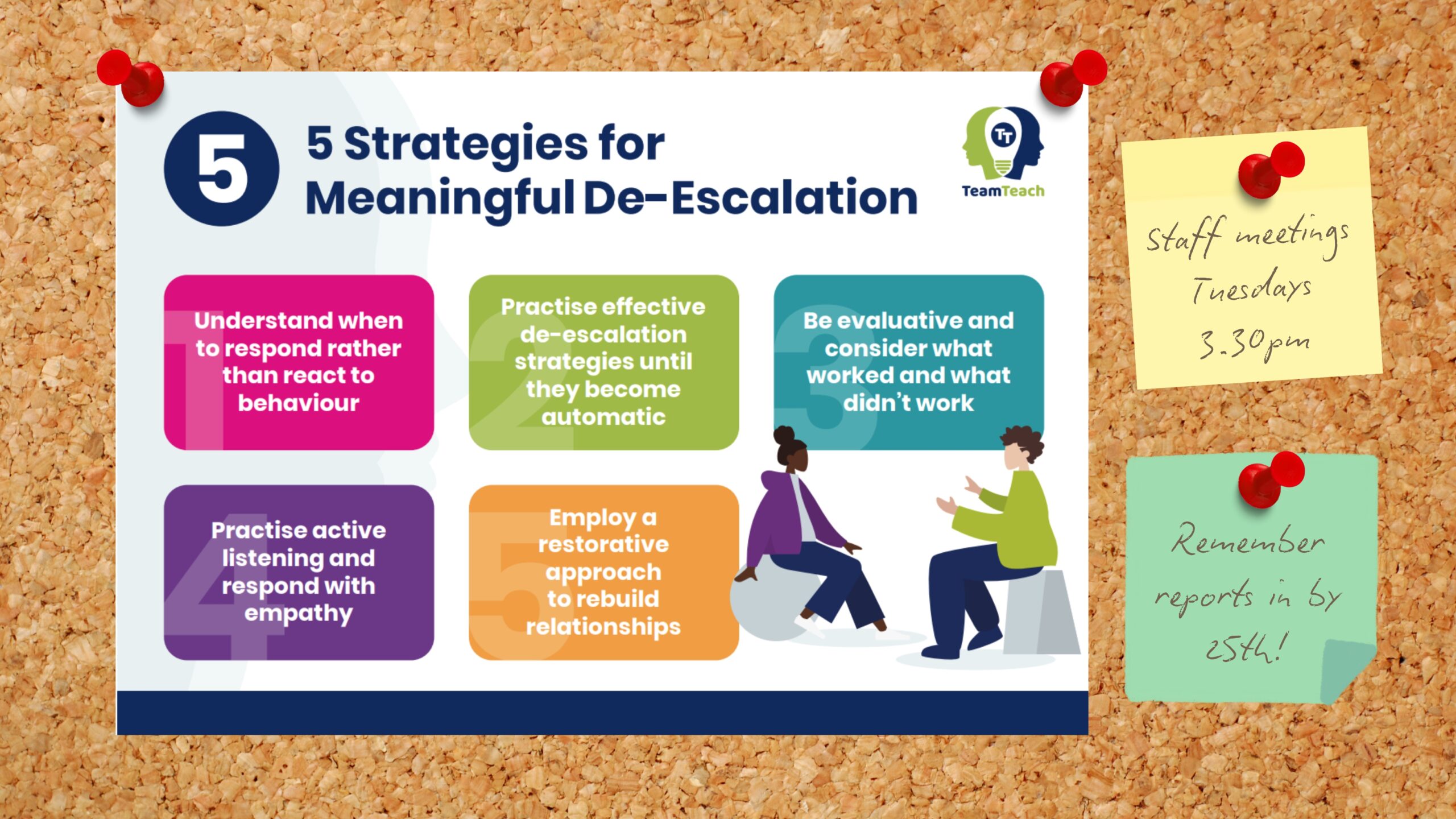Effective de-escalation strategies to reduce risk and the need for restrictive practices.
Strategies for Meaningful De-Escalation


Effective de-escalation strategies to reduce risk and the need for restrictive practices.

By using praise effectively, we can reinforce the behaviours we want to encourage.

How to create positive organisational cultures while reducing use of restrictive practices.

Poster outlining 5 key strategies to effectively de-escalate situations.
Dave Smallwood highlights ways to support biting and hitting behaviour in early years.

Ali Manning discusses ‘time in’ as an effective behaviour support strategy.

Part 2 eBook: how to understand what behaviour is communicating.

Exploring how the PBL Framework and Team Teach approach complement each other.

How to use ‘time in’ as a positive and inclusive behaviour support strategy with children and young people.

Blank Conflict Spiral template to map an individual’s experience.

Exploring what is meant by ‘de-escalation’ with strategies to defuse situations successfully.

Editable template to support the creation of an individual risk assessment.

Exploring strategies to defuse escalating situations with parents and carers.
Haydn Mansell discusses balancing trauma-informed approaches with maintaining boundaries.

Questions and activities to prompt reflection around the language we use to describe behaviour.